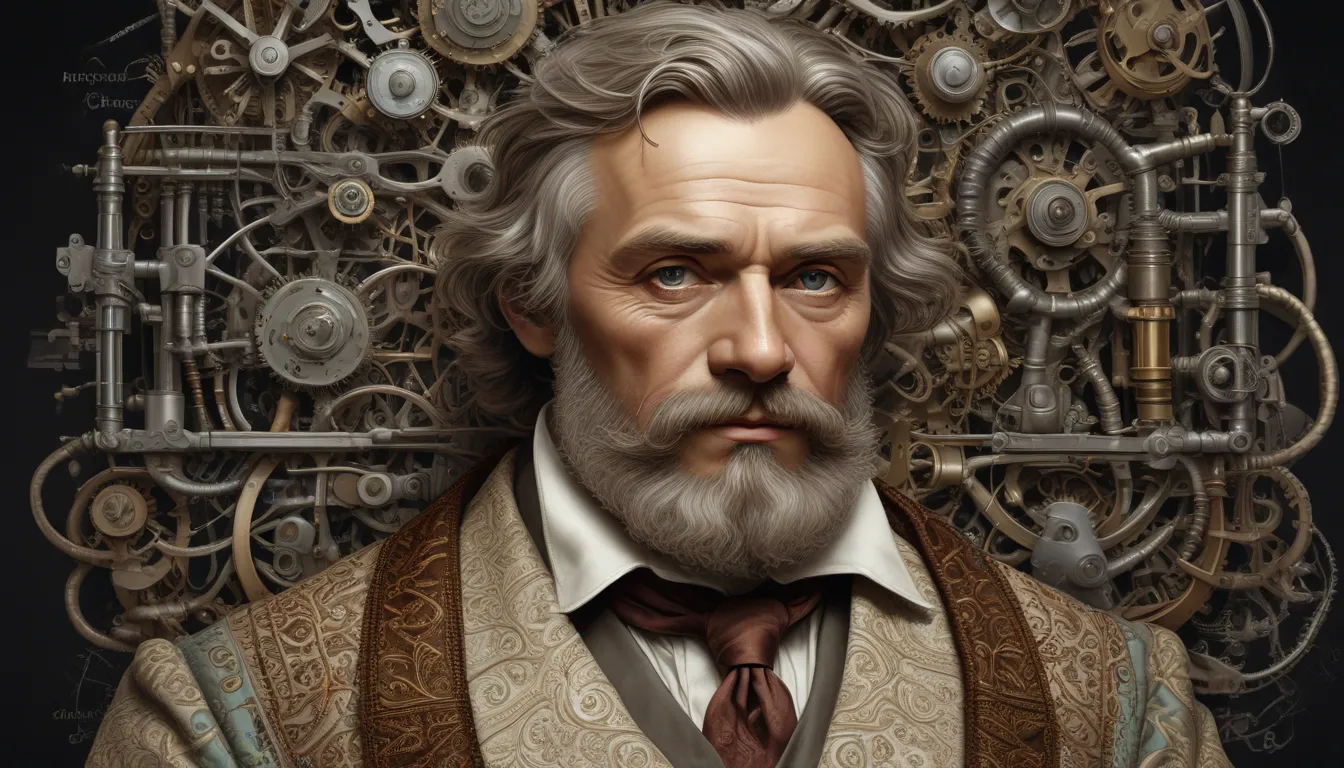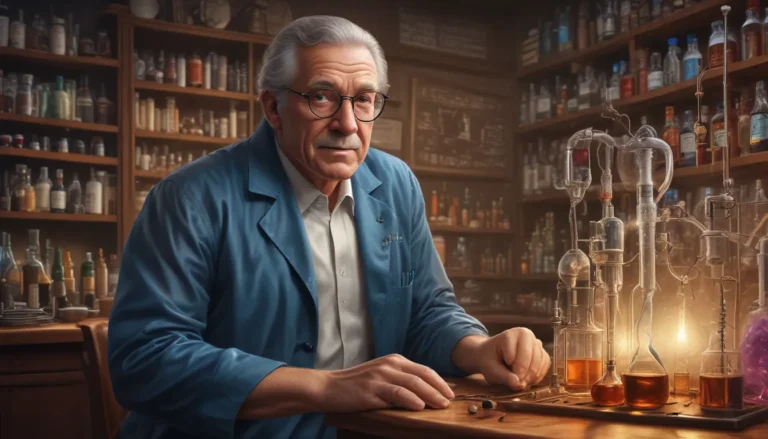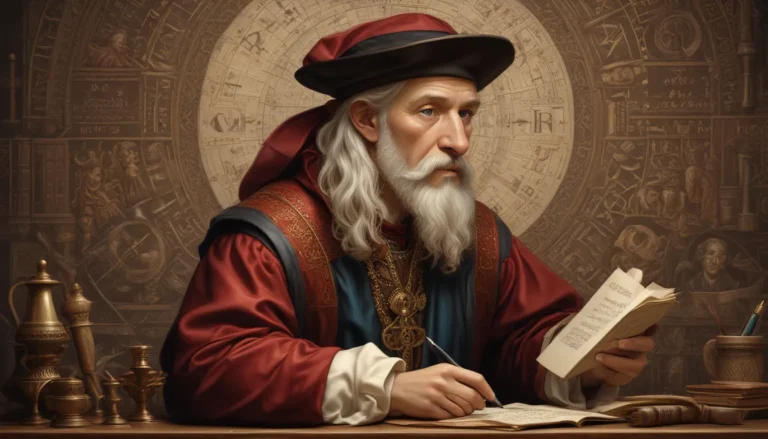The images in our articles may not match the content exactly. They are used to grab your attention, not to show the exact details in the text. The images complement the text but do not replace it.
In the vast landscape of scientific pioneers, one name shines brightly – Gustav Kirchhoff. This German physicist, born on March 12, 1824, in Königsberg, Prussia, made groundbreaking discoveries that revolutionized our understanding of light, electricity, and heat. His contributions to spectroscopy, thermodynamics, and circuit theory have left an indelible mark on the scientific community, shaping the way we view the world.
Exploring Kirchhoff’s Contributions
Gustav Kirchhoff’s work in physics has had a lasting impact on various fields, pioneering key concepts that continue to be foundational in modern science. Let’s delve into some of the most fascinating facts about this remarkable scientist:
-
Kirchhoff’s Circuit Laws: One of Kirchhoff’s most significant contributions is the formulation of Kirchhoff’s circuit laws. These fundamental principles are still used today in electrical engineering to analyze and solve complex electrical circuits.
-
Black-Body Radiation: Kirchhoff’s exploration of black-body radiation paved the way for the development of quantum mechanics. His findings about the emission and absorption of electromagnetic radiation of all wavelengths were revolutionary.
-
Thermal Radiation: The concept of thermal radiation was further developed by Kirchhoff, leading to the formulation of Kirchhoff’s law of thermal radiation. This law states that the emissive power of a body is equal to its absorptive power at thermal equilibrium.
-
Spectroscopy: Alongside Robert Bunsen, Kirchhoff co-discovered spectroscopy, a technique that studies the interaction between matter and electromagnetic radiation. This groundbreaking work led to the discovery of new elements and transformed the field of chemistry.
-
Identification of Elements: Using spectroscopy, Kirchhoff and Bunsen identified the elements cesium and rubidium in 1860, expanding our knowledge of the periodic table and elemental composition.
-
Advancements in Electrical Discharges: Kirchhoff’s experiments on electrical discharges in gases provided vital insights into the behavior of electric currents in different media, contributing to our understanding of electrical phenomena.
The Life and Legacy of Gustav Kirchhoff
Beyond his scientific achievements, Gustav Kirchhoff’s life is a testament to a brilliant mind dedicated to advancing human knowledge. His tenure as a physics professor at the University of Berlin influenced countless aspiring scientists, shaping the future of the scientific community.
Kirchhoff’s work continues to be foundational in the study of atomic and molecular spectra, offering valuable insights into the behavior of matter at the atomic level. His numerous honors and awards, such as the Rumford Medal of the Royal Society and the Copley Medal, reflect the recognition he received for his significant contributions to science.
Kirchhoff’s Enduring Impact
Gustav Kirchhoff’s groundbreaking discoveries laid the groundwork for future advancements in physics, particularly in fields like electromagnetism, quantum mechanics, and spectroscopy. His laws and principles remain essential tools in analyzing and understanding complex scientific phenomena, perpetuating his legacy as a scientific luminary.
In conclusion, Gustav Kirchhoff stands as a beacon of scientific innovation, with his contributions reverberating through the annals of scientific history. His work not only transformed our understanding of the natural world but also paved the way for a myriad of technological advancements that continue to shape our world today.
Delve Deeper into Kirchhoff’s Laws
Take the journey into the world of Gustav Kirchhoff’s laws, where the intricacies of electrical circuits and the mysteries of spectroscopy unravel before your eyes. Explore the fundamental principles that underpin modern electrical engineering and delve into the realm of atomic and molecular spectra with Kirchhoff as your guide.
Frequently Asked Questions
-
Who was Gustav Kirchhoff?
Gustav Kirchhoff was a German physicist renowned for his groundbreaking contributions to optics, spectroscopy, and electrical circuits. His laws on electrical circuits are foundational in electrical engineering principles. -
What are Kirchhoff’s laws?
Kirchhoff’s laws consist of the voltage law, stating that the sum of voltages in a closed loop is zero, and the current law, which states that the sum of currents entering a junction equals the sum leaving the junction. -
What is spectroscopy?
Spectroscopy involves studying the interaction between matter and electromagnetic radiation to analyze the composition, structure, and properties of substances. Kirchhoff played a pivotal role in the development of spectroscopic techniques. -
What were Kirchhoff’s contributions to science?
Kirchhoff made significant contributions to optics, spectroscopy, and electrical circuits, with his collaboration with Robert Bunsen leading to groundbreaking advancements in these fields. -
How did Kirchhoff’s work impact the world?
Kirchhoff’s work had a profound impact on science and technology, especially in the realms of electrical circuits and spectroscopy. His laws and principles provide a solid foundation for the study and design of complex systems in these fields.
Embark on a captivating journey through the remarkable life and work of Gustav Kirchhoff, where scientific brilliance and dedication converge to shape the course of modern science. Join us in unveiling the extraordinary legacy of this visionary physicist and explore the captivating world of Kirchhoff’s laws.






